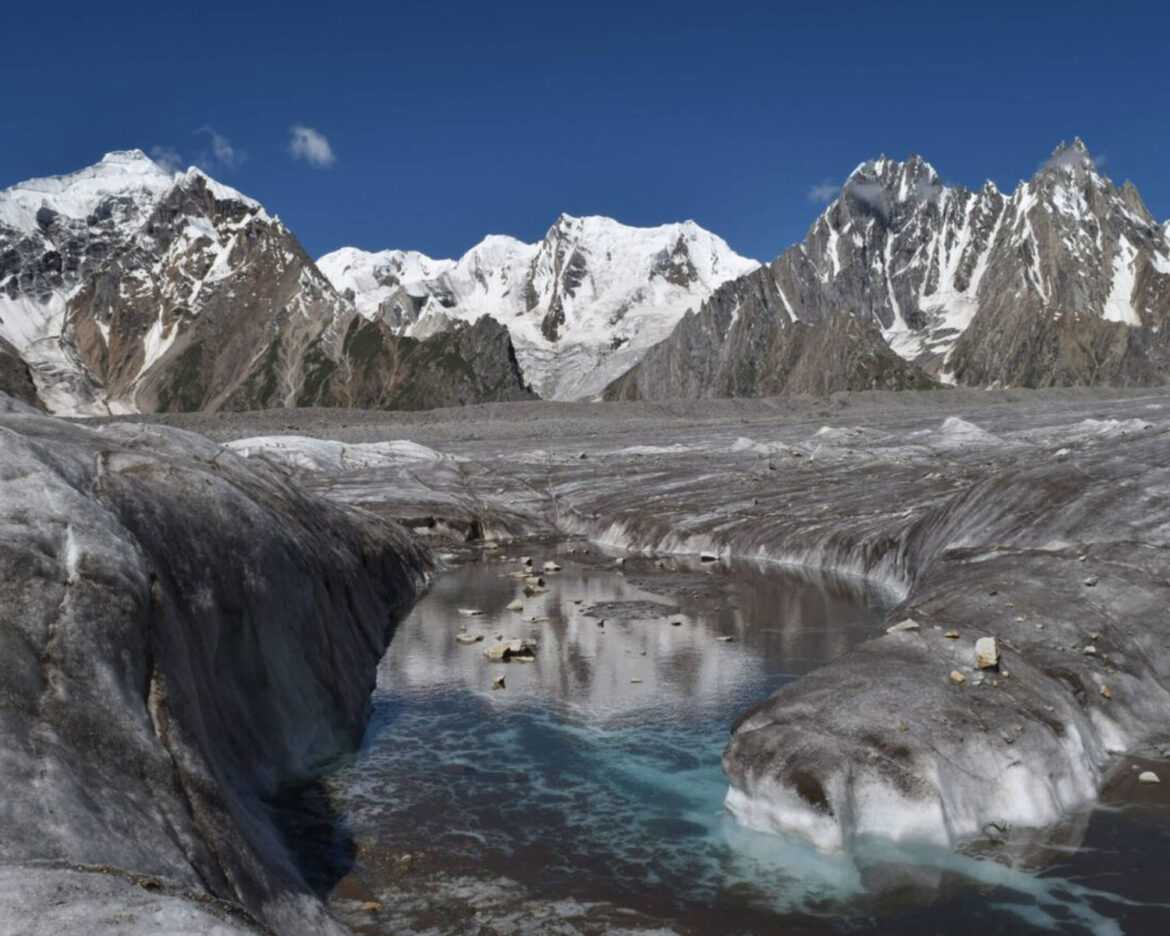Gilgit-Baltistan – Following nearly a week-long heatwave, several streams in Gilgit-Baltistan are experiencing flooding due to rapid glacier melt. The resulting deluge has damaged roads, public and private property, and agricultural lands, leaving local communities in a state of uncertainty.
Officials attribute the rising water levels to the persistent heatwave, which has accelerated glacier melting in the region. The Beraldu River in Shiger, swelled by meltwater from the Baltoro glacier, has caused significant erosion, damaging agricultural lands, trees, and a road connecting Testun village. This flash flood has sparked panic among residents, who are now taking measures to mitigate the damage.
The Hunza River also surged to high flood levels on Saturday, threatening the localities along its banks. The floodwaters have eroded agricultural lands in Ghalpin, Passu, and Gojal, and caused damage to the Karakoram Highway near Passu. Additionally, the flood has submerged agricultural land and transmission lines in Passu.
In Danyore, a flash flood damaged a water channel, Manga Road, and a channel supplying water to the Danyore powerhouse. In Nomal, the Hunza River flood swept away the transmission lines of the 18MW Naltar hydropower station, disrupting electricity supply to Gilgit. The Naltar Valley also experienced flooding. Gilgit city was without power on Tuesday and Wednesday, but authorities restored it by Thursday evening.
A mudflow in the Roundu area suspended traffic between Baltistan and other regions, and a similar event near Baghardu blocked the Baltistan Highway. Traffic was later restored in these areas.
Shahzad Shigri, the director of the GB Environmental Protection Agency, reported that water levels in rivers and nullahs have risen alarmingly. He attributed the phenomenon to climate change, warning of potential Glacier Lake Outburst Flood events and flash floods in the region until the end of August as temperatures peak.
“There are threats of Glacier Lakes Outburst Floods events and flash floods in the rivers till the end of August, as temperatures rise to a maximum level in this month,” he said, calling the rapid melting of glaciers this summer unprecedented.
Shigri noted a 0.5 degrees Celsius increase in average temperature over the past 30 years and cited the late start of snowfall last season as a contributing factor. Snowfall in November and December stabilizes ice, whereas snowfall in February and March remains unstable and fails to convert into ice, exacerbating the situation.



